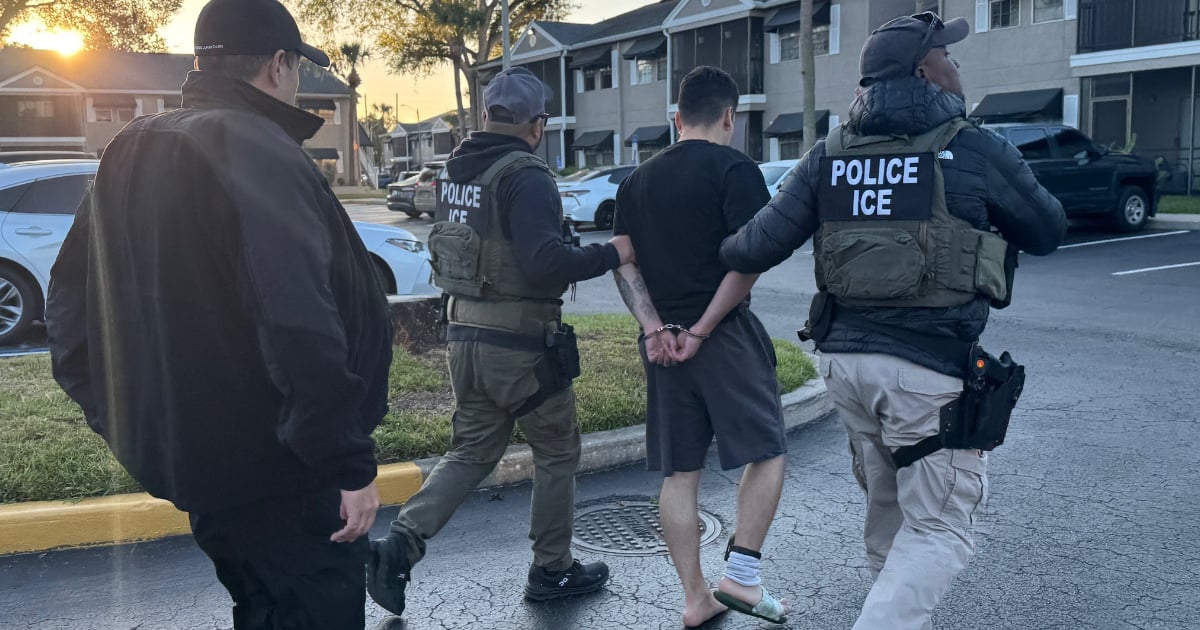In a surprising move, the United States Supreme Court temporarily halted the deportation of Venezuelan migrants detained in northern Texas under the controversial Alien Enemies Act, an 18th-century law historically invoked during wartime. This decision came in a brief order issued in the early hours, instructing President Donald Trump's administration to refrain from deporting migrants held at the Bluebonnet Detention Center "until further notice from this court."
Conservative justices Clarence Thomas and Samuel Alito expressed dissent regarding the Supreme Court's decision. This intervention was a response to an emergency request by the American Civil Liberties Union (ACLU), which condemned attempts by immigration authorities to resume deportations under this old statute. "We are deeply relieved. These individuals were at risk of being sent to brutal prisons without having had a fair process," stated Lee Gelernt, an ACLU attorney.
Back in April, the Supreme Court had authorized the U.S. government to apply this archaic legislation but insisted that affected individuals must be notified and given a reasonable time to appeal in court. Attorneys representing the detained migrants argue that the government failed to meet these minimal guarantees.
The ACLU had previously sought to halt the deportations through local courts, without success. Federal judges in Texas declined to intervene on Friday, and the Fifth Circuit Court of Appeals also refused to issue a protective order for the migrants detained at Bluebonnet.
The government has denied the existence of any scheduled deportation flights, although it retains the authority to carry out expulsions. Passed in 1798, the Alien Enemies Act has been invoked only three times in U.S. history, most recently during World War II, when it was used to intern Japanese-American citizens.
In this instance, Trump's team has used the act to justify deporting over 200 Venezuelans accused of being affiliated with the Tren de Aragua gang, despite the absence of any judicial conviction. Immigration lawyers have reported that some detainees were coerced into signing documents in English they did not understand and received notifications linking them to organized crime without adequate evidence.
Moreover, they indicated that the transfer of Venezuelans to Bluebonnet was a deliberate attempt by the government to circumvent court rulings that had already blocked deportations in other jurisdictions. América Noticias quoted Justice Samuel Alito, who harshly criticized the Supreme Court's decision, describing it as "unprecedented" and issued "literally in the middle of the night," without giving the government a chance to respond. In his view, the intervention was premature and lacked substantial factual support.
The Department of Homeland Security has not commented, while the ACLU continues its legal battle to stop the use of a law that, in its view, threatens to criminalize migration under unfounded pretenses.
FAQs on the Supreme Court's Decision on Venezuelan Migrant Deportations
What is the Alien Enemies Act?
The Alien Enemies Act is a law passed in 1798 that allows the U.S. government to detain and deport non-citizens from hostile nations during wartime. It has been used sparingly in American history.
Why did the Supreme Court intervene in the deportation case?
The Supreme Court intervened to temporarily halt the deportations after the ACLU filed an emergency request, arguing that the migrants were not given due process and that the government was misusing the Alien Enemies Act.
How has the U.S. government responded to the Supreme Court's order?
The U.S. government has denied any scheduled deportation flights but maintains that it still has the authority to carry out expulsions. The Department of Homeland Security has not issued any comments on the Supreme Court's order.
